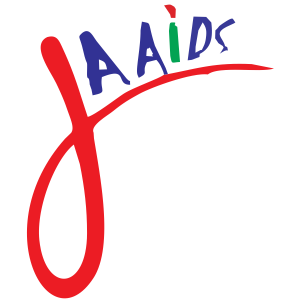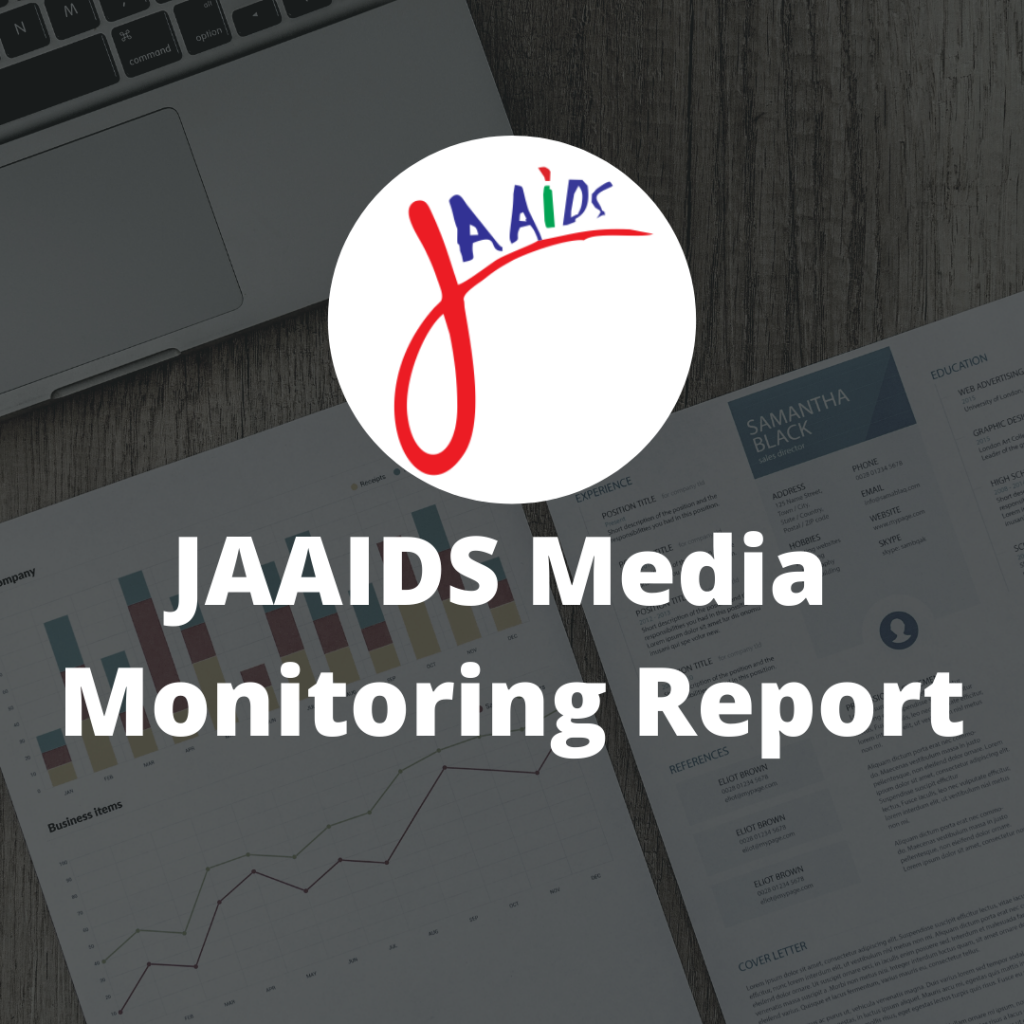Double Trouble: Living with HIV with no means of sustainable income
With the state of the economy where about half of the country’s population live on less than $1 a day, many Nigerians, including a great number of people living
with HIV/AIDS, are finding it difficult to feed. The case of many PLWH is made even more complicated by the fact that they have no steady jobs from which they get
sustainable income. This very important issue formed the crux of the story of Tell magazine on page 72 of its October 2 edition titled ‘Double Trouble’.
The two page feature report tells the different stories of PLWH who have no jobs, and thus have challenges with their welfare and visiting treatment
centres for their drugs. Many PLWH often lose their jobs and find it hard to make ends meet. They also hardly have money to carry out tests when necessary.
The inclusion of the voices of PLWH, the viewpoints offered by AIDS experts interviewed in the story, the use of relevant illustrations and statistics to drive home this point, as well as the actual presentation style all combine to set the TELL story apart from others in the month.
The total number of stories published in the month was 220. Of these, 151 were news stories, 31 were features stores while 19 were opinion articles. Six were
interviews; two were editorials, while five cartoons and six advertorials were published.
Vanguard led with 32, followed by National Mirror with 22 and The Nation with 20.
Vanguard and Champion published the two editorials in the month. While Vanguard’s was published October 7 (Death of HIV/AIDS Crusader), Champion published on October 18(For Omololu Falobi).
Both focused on Omololu Falobi, the Founder/Executive Director of Journalists Against AIDS (JAAIDS) Nigeria, who was killed on October 5, 2006 by men of the
underworld while on his way home from a speaking engagement where he had gone to address young entrepreneurs on the importance of social responsibility.
The papers challenged civil society and advocacy groups in the HIV/AIDS community to continue the relentless struggle which Omololu waged against the
epidemic during his short but very eventful life. In addition, Vanguard also tasked the government to stem the increasing tide of insecurity of lives and property in the country.
Perhaps due to the inability of the Nigeria Police to find the killers of prominent individuals who have been assassinated in the recent past in the country,
none of the papers called for the Police to find Omololu’s killers. But it is better if the media follows up the case as well as others so that the families of the departed would at least have the comfort that the killers of their loved ones are being brought to justice. As a foremost journalist and media trainer, it is not surprising that stories and tributes over Omololu’s death and burial were awash in many of the papers monitored.
In a story published by Business Day on October 18 titled “US disqualifies AIDS patients from visa lottery’, a consular officer at the US Consulate, Amy Lillis was said to have explained that even if PLWHs win the annual American Diversity Visa Lottery, they will be stopped from processing their documents for emigration.
While the US government is undeniably one of the highest spenders on HIV/AIDS globally, it remains a puzzle why the country and its organs would still be putting in place policies that are outrightly discriminative against people living with HIV and AIDS.
True, embassies have the right to issue or deny visas on certain conditions. But this argument of denying PLWHs who win the visa lottery entrance into the country despite what they can offer is an advocacy point which civil society groups on HIV/AIDS and the media must not fail to take up. It is a draw back in the efforts to stem HIV-related stigma and discrimination.
Although not totally focused on HIV/AIDS, ‘New Face of an Old Trade’, a three-page feature report published in the Daily Independent on October 28 also stands
out. The story is about the worrisome trend of prostitution in many of the nation’s tertiary institution despite the prevalence of the HIV/AIDS epidemic.
New styles, according to the report, are being introduced to remould the old trade. National Mirror and The Sun had similar reports on October 7 and Oct
29. The respective headlines were ‘Nigerian Housewives involved in Prostitution Abroad’ and ‘Agony of a girl Prostitute’. The stories aptly expose the need for
more HIV/AIDS intervention activities among commercial sex workers.
Some journalists and copy editors need to improve their art if ‘HIV victims seeks infected spouse’, a story in page 32 of the National Mirror on October 12 is anything to go by.
Although the story is about young HIV positive men and women who are hoping to end isolation and discrimination by marrying one another in India, the relationship between the photograph published with the story remains a question. The fact that it was not captioned also made it worse. Moreover, people living with HIV are not ‘HIV victims’.
Reading through New Age’s October 25 news story titled ‘PLWHAs warned against use of AR drugs’, the reader is likely to be confused over what the intent of the
story is all about. Is it to discourage PLWH from enlisting in the free ARV treatment programme of the government, or for PLWH to stop self-medication and
perhaps for government to make the drugs more accessible to those who need it?
This is because in the first paragraph, the official who was quoted in the report, Dr. Uche Enyinnaya, programme manager in the Abia State HIV/AIDS Programme
Development Project was said to have warned PLWH from the use of anti-retroviral drugs as it is toxic and dangerous when taken as self-medication.
However, in the next paragraph, the same man was said to have opined that the federal government should, as a matter of urgency, make the drugs more accessible to
the infected persons and supplement its high cost.
This obvious contradiction only leaves the reader confused and wondering if the reporter actually understands what the official really said. This is the more reason why copy editors need to scrutinize stories submitted by reporters instead of just passing them on for production.
With the worrisome claims of some doctors who peddle cures for HIV/AIDS through adverts in the media, Daily Sun’s story on October 31 offers a cheering news if it
is implemented. “FG vows to prosecute fake HIV/AIDS cure doctors, others’ was the headline.
The media must help put this issue in the front burner so that concrete steps could be taken by the government towards enforcing the announcement. Moreover, media owners must also be socially responsible by not advertising bogus claims without any verification which could force many PLWH desperate for a cure to patronize these harmful drugs and thereby suffer untold damages to their internal organs.
Other outstanding stories in the month include ‘Laboratories are compounding HIV/AIDS Prevention Programes, Guardian, October 22, page 49, ‘For NACA,
it’s time to look after the disabled’, The Nation, October 10, page 36 and ‘How I contracted HIV/AIDS with N20” published in Tribune on October 13. A
controversial one was ‘Condom for all will lead to sex for all and eventually HIV/AIDS for all, says expert’ published in The Sun on October 30.
There was generally less use of inappropriate use of words in stories and in headlines in the month except for This Day’s cover front-page story on October 19
titled ‘HIV/AIDS: Nigeria 3rd highest infested country’.
The story was the only AIDS report that made the cover page in the papers monitored. ‘Infected would have been a better substituted for ‘infested’ in the headline since what is being discussed are not insects or animals. Still on This Day, the headline of its story on October 24 ‘HIV/AIDS Victim gets pseudonym for Prosecution’ could have been adjusted so the ‘victim’ is removed since it is a stigmatizing description.
Overall, the papers reviewed in the month showed that diversity of topics/issues relating to HIV/AIDS are continuously being addressed by the Nigerian media. There is therefore no disputing the fact that Nigerian news organizations really understand that if HIV/AIDS is not in the media, it could as well not exist for communities to rely on them for information.
News papers monitored in the month are: Business Day, Champion, Daily Independent, Daily Trust, Guardian, National Mirror, New Age, Sun, Punch, This Day, Tribune, The Nation and Vanguard
News magazines monitored in the month are: Tell, The Week, The News, Insider, Newswatch, Encomium and City People

